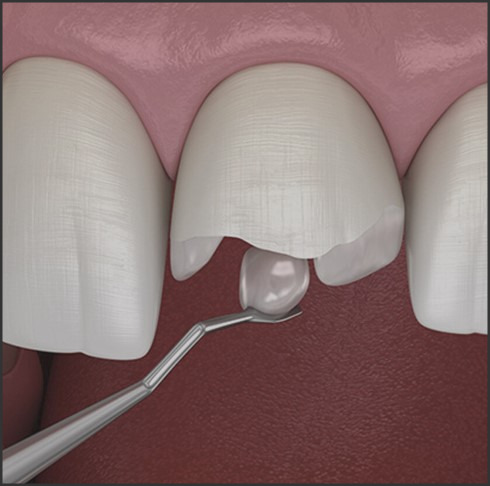Category Archives: Health
Oxalates and Kidney Stones: Dietary Considerations for Kidney Health

Source : https://inkidney.com
Oxalates are naturally occurring compounds found in many foods, including fruits, vegetables, nuts, and grains. They are also produced by the body and can be found in urine. High levels of oxalates in the body can lead to the formation of kidney stones, which can cause pain and other complications. Therefore, it is important to be aware of dietary considerations for kidney health, such as limiting oxalate-rich foods and increasing intake of fluids. This article will discuss the role of oxalates in kidney stone formation, as well as dietary strategies to reduce the risk of kidney stones.
How Oxalates Can Contribute to Kidney Stones: A Guide to Dietary Considerations
Kidney stones are a common and painful condition that can be caused by a variety of factors. One of these factors is the presence of oxalates in the diet. Oxalates are naturally occurring compounds found in many foods, and when consumed in excess, they can contribute to the formation of kidney stones. This guide will provide an overview of oxalates and their role in kidney stone formation, as well as dietary considerations for those at risk of developing kidney stones.
Oxalates are compounds found in many plant-based foods, including spinach, rhubarb, beets, nuts, and chocolate. They are also found in some fruits and vegetables, such as strawberries, raspberries, and potatoes. Oxalates are not absorbed by the body, but instead are broken down in the digestive tract and excreted in the urine. When oxalates are present in the urine in high concentrations, they can bind with calcium to form calcium oxalate crystals, which can then form kidney stones.
Those at risk of developing kidney stones should be aware of the foods that are high in oxalates and limit their intake. Foods that are particularly high in oxalates include spinach, rhubarb, beets, nuts, chocolate, strawberries, raspberries, and potatoes. It is also important to note that some foods, such as tea and coffee, contain oxalates but are not considered to be high in oxalates.
In addition to limiting the intake of high-oxalate foods, it is also important to increase the intake of foods that are high in calcium, such as dairy products, leafy greens, and fortified cereals. Calcium binds with oxalates in the digestive tract, preventing them from being absorbed and excreted in the urine. Increasing the intake of calcium-rich foods can help reduce the risk of kidney stone formation.
Finally, it is important to stay hydrated by drinking plenty of water throughout the day. Adequate hydration helps to dilute the concentration of oxalates in the urine, reducing the risk of kidney stone formation.
By following these dietary considerations, those at risk of developing kidney stones can reduce their risk of developing this painful condition. It is important to speak with a healthcare professional for more information and personalized advice.
The Role of Oxalates in Kidney Stones: What You Need to Know About Dietary Choices
Kidney stones are a common and painful condition that affects millions of people each year. While there are many potential causes of kidney stones, one of the most common is the presence of oxalates in the diet. Understanding the role of oxalates in kidney stones and making informed dietary choices can help reduce the risk of developing this painful condition.
Oxalates are naturally occurring compounds found in many foods, including fruits, vegetables, nuts, and grains. They are also produced by the body as a byproduct of metabolism. When oxalates are consumed in excess, they can accumulate in the kidneys and form crystals that can eventually become kidney stones.
The most common dietary sources of oxalates are spinach, rhubarb, beets, nuts, chocolate, tea, and wheat bran. Eating these foods in moderation can help reduce the risk of developing kidney stones. Additionally, it is important to drink plenty of fluids to help flush out any excess oxalates from the body.
In addition to dietary changes, there are other steps that can be taken to reduce the risk of developing kidney stones. Limiting the intake of salt and animal proteins can help reduce the amount of calcium in the urine, which can reduce the risk of forming oxalate crystals. Additionally, maintaining a healthy weight and exercising regularly can help reduce the risk of developing kidney stones.
Making informed dietary choices and taking steps to reduce the risk of developing kidney stones can help reduce the pain and discomfort associated with this condition. By understanding the role of oxalates in kidney stones, individuals can make informed decisions about their dietary choices and take steps to reduce their risk of developing this painful condition.
Conclusion
In conclusion, oxalates can be a contributing factor to the formation of kidney stones. Therefore, it is important to be mindful of dietary choices that are high in oxalates and to consider reducing or avoiding these foods to help reduce the risk of kidney stones. Additionally, it is important to stay hydrated and to consume adequate amounts of calcium to help reduce the risk of kidney stones. By making healthy dietary choices and staying hydrated, individuals can help reduce their risk of developing kidney stones.
Exploring Fat Cavitation: A Non-Surgical Body Contouring Option

Source : https://5.imimg.com
Exploring fat cavitation is a non-surgical body contouring option that has become increasingly popular in recent years. It is a safe and effective way to reduce fat and improve body shape without the need for surgery. fat cavitation is a process that uses ultrasound technology to break down fat cells, which are then naturally eliminated from the body. This process can be used to target specific areas of the body, such as the abdomen, thighs, and arms, and can help to reduce the appearance of cellulite. In this article, we will explore the benefits of fat cavitation, the risks associated with the procedure, and how to find a qualified practitioner.
How Fat Cavitation Works: Exploring the Science Behind Non-Surgical Body Contouring
fat cavitation is a non-surgical body contouring procedure that has become increasingly popular in recent years. This procedure uses ultrasound technology to break down fat cells, allowing them to be naturally eliminated from the body. While the results of fat cavitation are impressive, many people are unaware of the science behind this procedure. This article will explore the science behind fat cavitation, providing a better understanding of how this procedure works.
fat cavitation works by using ultrasound technology to create a low-frequency sound wave. This sound wave is directed at the targeted area of fat, causing the fat cells to vibrate. This vibration causes the fat cells to break down into smaller particles, which can then be naturally eliminated from the body.
The sound waves used in fat cavitation are of a low frequency, meaning that they are not strong enough to cause any damage to the surrounding tissue. This makes fat cavitation a safe and effective procedure for body contouring.
The sound waves used in fat cavitation are also of a low intensity, meaning that they do not penetrate deep into the body. This means that the procedure is only effective on the surface layer of fat, making it ideal for targeting stubborn areas of fat that are resistant to diet and exercise.
The sound waves used in fat cavitation also cause the fat cells to heat up. This heat causes the fat cells to break down even further, allowing them to be more easily eliminated from the body.
Overall, fat cavitation is a safe and effective procedure for body contouring. By using low-frequency sound waves, fat cells are broken down into smaller particles, allowing them to be naturally eliminated from the body. This makes fat cavitation an ideal option for those looking to reduce stubborn areas of fat without undergoing surgery.
The Benefits of Fat Cavitation: Why It’s Becoming a Popular Non-Surgical Body Contouring Option
fat cavitation is a non-surgical body contouring procedure that is becoming increasingly popular among those looking to reduce fat and improve their body shape. This procedure uses ultrasound technology to break down fat cells, which are then naturally eliminated from the body. It is a safe and effective way to reduce fat without the need for surgery or downtime.
The primary benefit of fat cavitation is that it is a non-invasive procedure. Unlike liposuction, which requires incisions and anesthesia, fat cavitation does not involve any cutting or anesthesia. This makes it a much safer and more comfortable option for those looking to reduce fat. Additionally, fat cavitation is a relatively quick procedure, with most sessions lasting between 30 minutes and an hour.
Another benefit of fat cavitation is that it is a relatively painless procedure. Unlike liposuction, which can be quite painful, fat cavitation is relatively comfortable. Most patients report feeling only a slight tingling sensation during the procedure. Additionally, there is no downtime associated with fat cavitation, meaning that patients can return to their normal activities immediately after the procedure.
fat cavitation is also a very effective way to reduce fat. Studies have shown that fat cavitation can reduce fat by up to 30%, with some patients seeing even greater results. Additionally, fat cavitation can help to improve the appearance of cellulite, as well as reduce the appearance of stretch marks.
Finally, fat cavitation is a cost-effective option for those looking to reduce fat. Compared to liposuction, which can cost thousands of dollars, fat cavitation is much more affordable. Additionally, fat cavitation can be used to target specific areas of the body, making it a great option for those looking to reduce fat in specific areas.
Overall, fat cavitation is a safe and effective way to reduce fat without the need for surgery or downtime. It is a relatively painless procedure that can help to reduce fat by up to 30%, as well as improve the appearance of cellulite and stretch marks. Additionally, it is a cost-effective option for those looking to reduce fat without breaking the bank. For these reasons, fat cavitation is becoming an increasingly popular non-surgical body contouring option.
Conclusion
Exploring fat cavitation is a great non-surgical body contouring option for those looking to reduce fat in specific areas of their body. It is a safe and effective procedure that can help to reduce fat in areas such as the abdomen, thighs, and arms. It is important to note that fat cavitation is not a weight loss solution, but rather a way to reduce fat in specific areas. It is important to consult with a qualified professional before undergoing any type of body contouring procedure. With the right guidance and care, fat cavitation can be a great way to achieve the desired body shape.
Marriage and Social Media: Navigating the Digital Age Together

Husband and wife supporting each other at couple’s therapy
Introduction:
In today’s digital age, social media has become an integral part of our lives, influencing the way we connect, communicate, and share experiences. However, the impact of social media on marriages is a subject of growing concern. This blog will explore the intersection of marriage and social media, discussing both the positive and potentially challenging aspects. We’ll also touch upon the role of marriage counseling in helping couples navigate these digital dynamics.
The Digital Age Dilemma:
Social media platforms have revolutionized how we connect with friends, family, and even strangers. They offer a space to share our thoughts, experiences, and memorable moments. Yet, the same platforms can introduce complexities and challenges to the dynamics of a marriage.
The Positives of Social Media in Marriage:
- Staying Connected: Social media allows couples to remain connected throughout the day, even when physically apart. Sending sweet messages or sharing special moments can strengthen emotional bonds.
- Shared Interests: Couples often connect over shared interests, whether it’s following influencers, joining online communities, or exploring hobbies together on social media.
- Support and Inspiration: Social media can provide valuable support networks for couples going through challenges. It can also be a source of inspiration for improving relationships.
The Challenges of Social Media in Marriage:
- Privacy and Boundaries: Maintaining privacy and setting boundaries can become issues, as sharing too much personal information can be detrimental to a relationship.
- Comparison and Insecurity: Social media often portrays idealized versions of people’s lives, which can lead to unhealthy comparisons and insecurity in a marriage.
- Time Management: Excessive time spent on social media can detract from quality time with a spouse, leading to emotional distance.
- Miscommunication: Misunderstandings can arise from online interactions, as tone and intent can be misconstrued.
Navigating the Digital Age Together:
To ensure that social media enhances rather than hinders your marriage, consider these tips:
- Open Communication: Talk about your social media use and establish boundaries. Discuss what is comfortable for both partners and how you can respect each other’s privacy.
- Quality Time: Allocate technology-free quality time together to nurture your connection.
- Be Mindful of Content: Think twice before posting about your relationship or sharing personal details. Consider the impact it might have on your partner.
- Unplug Regularly: Dedicate time to unplug from social media and engage in meaningful, face-to-face interactions.
- Marriage Counseling: If social media is causing significant issues in your marriage, consider seeking marriage counseling. Professional guidance can help you address these challenges and improve your relationship.
The Role of Marriage Counseling:
Marriage counseling offers a safe and supportive environment to address the challenges posed by social media. It can help couples strengthen their communication, rebuild trust, and establish healthier boundaries. A qualified marriage counselor can provide strategies and insights for navigating the digital age while maintaining a strong, loving partnership.
Social media is here to stay, and it can be a valuable tool for strengthening marriages when used mindfully. By prioritizing open communication, setting boundaries, and seeking professional help through marriage counseling if needed, couples can navigate the digital age together and ensure that social media enhances, rather than hinders, their relationship.
Lower Back Pain Right Side Above Hip Female: Causes and Relief

Source : https://khealth.com
lower back pain right side above hip female is a common complaint among women of all ages. It can be caused by a variety of factors, including poor posture, muscle strain, and injury. Fortunately, there are several treatments available to help relieve the pain and discomfort associated with this condition. This article will discuss the causes of lower back pain right side above hip female, as well as some of the treatments available to help alleviate the pain. Additionally, it will provide tips on how to prevent lower back pain right side above hip female from occurring in the first place.
Exploring the Causes of Lower Back Pain Right Side Above Hip in Females
Lower back pain right side above hip in females is a common complaint that can be caused by a variety of factors. It is important to understand the potential causes of this type of pain in order to properly diagnose and treat it.
One of the most common causes of lower back pain right side above hip in females is a herniated disc. This occurs when the cushioning between the vertebrae in the spine becomes damaged or weakened, allowing the disc to bulge out and press on the nerves in the area. This can cause pain, numbness, and tingling in the lower back and hip area.
Another potential cause of lower back pain right side above hip in females is a condition known as sciatica. This occurs when the sciatic nerve, which runs from the lower back down the leg, becomes compressed or irritated. This can cause pain, numbness, and tingling in the lower back and hip area.
Other potential causes of lower back pain right side above hip in females include muscle strain, ligament strain, and arthritis. Muscle strain can occur when the muscles in the lower back become overworked or strained due to repetitive motions or activities. Ligament strain can occur when the ligaments that support the spine become overstretched or torn. Arthritis can cause inflammation and pain in the joints of the lower back.
Finally, lower back pain right side above hip in females can also be caused by pregnancy. During pregnancy, the weight of the baby can put extra strain on the lower back, leading to pain and discomfort.
It is important to seek medical attention if you are experiencing lower back pain right side above hip in females. Your doctor can help diagnose the cause of your pain and recommend the best treatment options. Treatment may include rest, physical therapy, medications, or surgery.
Relief Strategies for Lower Back Pain Right Side Above Hip in Females
Lower back pain on the right side above the hip is a common complaint among females. Fortunately, there are a number of strategies that can be employed to help alleviate this type of pain.
The first step in managing lower back pain is to identify the underlying cause. Common causes of lower back pain on the right side above the hip include muscle strain, sciatica, and herniated discs. It is important to consult with a medical professional to determine the exact cause of the pain.
Once the cause of the pain has been identified, there are a number of strategies that can be employed to help alleviate the pain. These strategies include:
1. Rest: Resting the affected area can help to reduce inflammation and allow the body to heal. It is important to avoid activities that may aggravate the pain, such as lifting heavy objects or engaging in strenuous physical activity.
2. Heat and Cold Therapy: Applying heat or cold to the affected area can help to reduce inflammation and provide relief from pain.
3. Exercise: Gentle stretching and strengthening exercises can help to improve flexibility and reduce pain.
4. Medication: Over-the-counter pain medications, such as ibuprofen or acetaminophen, can help to reduce pain and inflammation.
5. Physical Therapy: A physical therapist can provide exercises and treatments that can help to reduce pain and improve mobility.
By following these strategies, it is possible to reduce the pain associated with lower back pain on the right side above the hip. It is important to consult with a medical professional to determine the best course of treatment for your individual situation.
Conclusion
lower back pain right side above hip female is a common condition that can be caused by a variety of factors. It is important to identify the underlying cause of the pain in order to determine the best course of treatment. Treatment options may include lifestyle modifications, physical therapy, medications, and in some cases, surgery. It is important to consult with a healthcare professional to determine the best course of action for your individual situation. With the right treatment, lower back pain right side above hip female can be managed and relieved.
Managing Broken Tooth Pain: Tips for Dental Emergency Care

Source: dentistinbrooklyn.com
If you have ever experienced a broken tooth, you know how painful and uncomfortable it can be. Managing broken tooth pain can be difficult, especially if you are in a dental emergency. Fortunately, there are some tips and strategies you can use to help manage the pain and discomfort associated with a broken tooth. This article will provide you with some tips for dental emergency care and managing broken tooth pain.
How to Manage Broken Tooth Pain: Tips for Emergency Dental Care
If you are experiencing broken tooth pain, it is important to seek emergency dental care as soon as possible. While waiting for your appointment, there are several steps you can take to manage the pain.
First, rinse your mouth with warm salt water. This will help to reduce inflammation and clean the area around the broken tooth. You can also take an over-the-counter pain reliever such as ibuprofen or acetaminophen to help reduce the pain.
If the pain is severe, you can apply a cold compress to the outside of your cheek. This will help to reduce swelling and numb the area. You can also use a topical anesthetic such as benzocaine to help numb the area.
It is important to avoid eating or drinking anything that is too hot or cold. This can cause further irritation and pain. You should also avoid eating hard or crunchy foods that could cause further damage to the broken tooth.
If you are experiencing broken tooth pain, it is important to seek emergency dental care as soon as possible. While waiting for your appointment, you can take steps to manage the pain such as rinsing your mouth with warm salt water, taking an over-the-counter pain reliever, applying a cold compress, and avoiding hot or cold foods. By following these tips, you can help to reduce your pain and ensure that your broken tooth is properly treated.
What to Do When You Have a Broken Tooth: Emergency Dental Care Tips for Pain Relief
If you have a broken tooth, it is important to seek emergency dental care as soon as possible. A broken tooth can be painful and can lead to further complications if not treated promptly. Here are some tips to help you manage the pain and get the care you need.
1. Rinse your mouth with warm salt water. This can help to reduce inflammation and pain.
2. Take an over-the-counter pain reliever such as ibuprofen or acetaminophen.
3. Apply a cold compress to the affected area. This can help to reduce swelling and pain.
4. If the broken tooth is causing severe pain, you may need to take a stronger pain reliever such as codeine or hydrocodone.
5. Contact your dentist as soon as possible. Explain the situation and ask for an emergency appointment.
6. If you cannot reach your dentist, go to the nearest emergency room.
7. If the broken tooth is causing bleeding, apply pressure to the area with a clean cloth or gauze.
8. If the broken tooth is causing severe pain, you may need to take a stronger pain reliever such as codeine or hydrocodone.
9. If the broken tooth is causing severe pain, you may need to take a stronger pain reliever such as codeine or hydrocodone.
10. If the broken tooth is causing severe pain, you may need to take a stronger pain reliever such as codeine or hydrocodone.
By following these tips, you can help to manage the pain and get the care you need for your broken tooth. Remember to contact your dentist as soon as possible to ensure that the problem is addressed promptly.
Conclusion
Managing broken tooth pain can be a difficult and uncomfortable experience. However, with the right knowledge and care, it is possible to reduce the pain and discomfort associated with a broken tooth. It is important to seek professional dental care as soon as possible to ensure that the broken tooth is properly treated and to prevent further damage. Additionally, there are several home remedies that can be used to help manage the pain and discomfort associated with a broken tooth. By following these tips, you can help ensure that your broken tooth is properly cared for and that you can manage the pain and discomfort associated with it.





